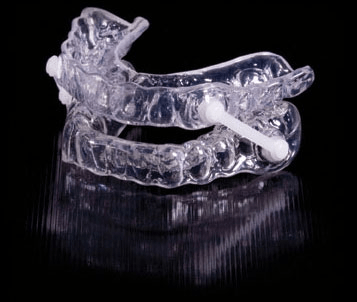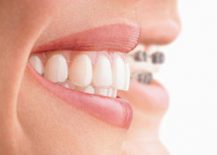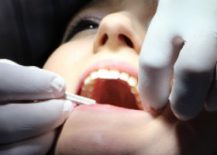Anti Snoring Solutions
As part of our extensive range of services, we can prepare and fit anti-snoring devices to help patients who suffer from sleep apnoea and other related sleeping disorders. Many people who snore suffer from a lack of quality sleep time developing irritability and short tempers. Patients who snore also suffer abnormal sleep patterns; which in turn interrupts the amount of actual sleep gained in any one night.
To stop snoring, most people simply need to push their jaw forward a short way. Many of our customers are amazed to find that something as simple as this makes such a difference. It is simple yet very effective and works regardless of the type of snoring. This is one of only three stop snoring treatments that can be relied upon to work. At Smilessence, our anti snoring device leads to mandibular (lower jaw) advancement which opens the airway which in turn stops snoring for most people.

While you can hold your jaw forward when awake, you can’t when asleep. The device is a simple and comfortable way to hold your jaw slightly forward and most people get used to wearing one very quickly. It opens the upper airway and gently keeps the soft palate taut. When these two factors are combined, you can be almost sure to stop snoring. Most snorers, regardless of their type of snoring, benefit from having more space to breathe through in the upper airway.
Mandibular advancement is very effective for most snorers. All the patients at Smilessence who have worn this appliance have had 100% success.
Most people find them comfortable, or get used to them within a few days to a couple of weeks. Having said that, we can’t answer this question for you, as the only way you will find out is to try one.
People with dentures or missing teeth may or may not be able to wear the appliance. It depends upon which teeth are missing and whether or not you wear your dentures when asleep. With our appliance at Smilessence, it is normally not a problem if you have your front teeth, or if you normally wear “front teeth” dentures while asleep. However, it may be wise to discuss this with Dr Karen Gangotra during your consultation. We normally tell denture wearers that we won’t know if it works until you actually try it. Given that there is a greater degree of uncertainty associated with denture wearers.










